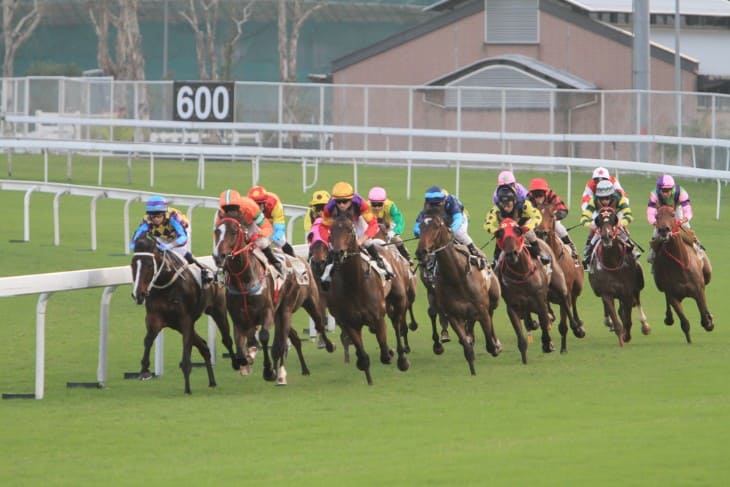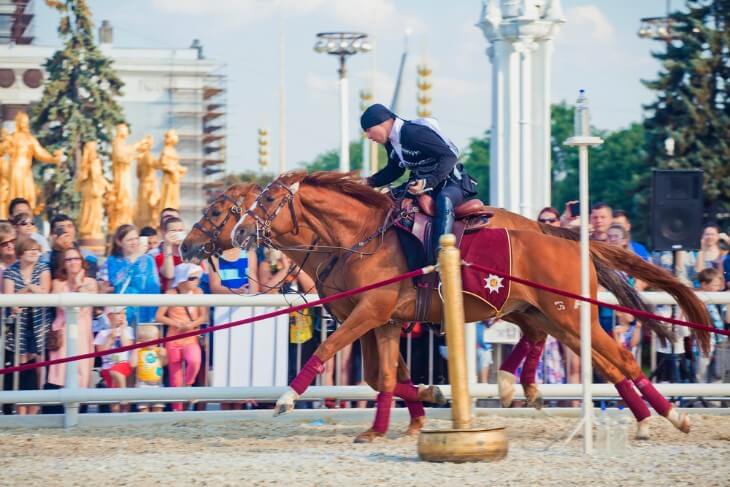The Origins of Horse Racing
Horse racing, a sport that has captured the hearts and minds of people for centuries, finds its origins deeply rooted in antiquity. The history of horse racing can be traced back to ancient civilizations, where it served both practical and recreational purposes. In the fertile crescents of Mesopotamia, around 2000 BC, horse racing was already a well-established tradition. These early races, unlike the sleek tracks of today, were often held on open plains. The objective was simple: to test the speed and endurance of horses, which played a vital role in transportation and warfare.
Moving forward in time to ancient Greece, we encounter another significant milestone in the history of horse racing. The Greeks introduced the concept of organized horse racing, as they often used it as part of the Olympic Games. These races, called "hippodromes," featured horses pulling chariots and were greeted with great enthusiasm by spectators. They laid the foundation for the structured races we witness today. The Romans, too, embraced horse racing with vigor, turning it into a spectacle of entertainment. This period marked a transition from racing for practical purposes to racing for sheer enjoyment, setting the stage for horse racing's evolution into the sport we know today.
The Evolution of the Sport
As horse racing migrated to the British Isles, it underwent significant transformations. In medieval England, it was primarily a pastime of the aristocracy, with private matches and wagers taking center stage. During the reign of Richard the Lionheart in the 12th century, the sport became so popular that regulations were introduced to curb excesses in betting and maintain fairness. This marked the formalization of horse racing in Britain, laying the groundwork for modern racing.
One pivotal development in the evolution of horse racing was the emergence of dedicated racecourses. The first recorded racecourse in Britain was established in the early 17th century at Nottingham. These courses brought structure and legitimacy to the sport, attracting a broader audience. It wasn't long before the concept of thoroughbred horse racing was introduced, emphasizing the purity of bloodlines and breeding for speed. The 18th century saw the establishment of the Jockey Club, a governing body that played a critical role in regulating and shaping the sport. This era marked the beginning of horse racing's transformation from a local pastime to a national obsession, setting the stage for its continued evolution in the years to come.

The Golden Age of Horse Racing
The 18th and 19th centuries in Britain marked what can be described as the golden age of horse racing. During this period, the sport experienced unprecedented growth and became an integral part of British culture. The influence of royalty on horse racing cannot be overstated. Monarchs like King James I and Queen Anne were ardent patrons of the sport, and their support led to increased popularity and the establishment of prestigious races. The monarchs' involvement also paved the way for nobility and aristocracy to participate actively in horse racing, further elevating its status.
One of the hallmarks of this golden age was the emergence of legendary racehorses that captured the public's imagination. Horses like Eclipse and Flying Childers achieved legendary status due to their exceptional speed and endurance. Their names are still revered in the world of horse racing today. Additionally, the introduction of famous races like the St. Leger Stakes, the Epsom Derby, and the Grand National further cemented the sport's significance. These races became annual traditions, eagerly awaited by enthusiasts and punters alike.
Modernization and Standardization
The late 19th century and early 20th century witnessed significant modernization and standardization in horse racing. One of the most transformative developments was the emergence of the thoroughbred breed. The selective breeding of thoroughbreds for speed and stamina revolutionized the sport, producing horses that were unparalleled in their racing capabilities. This shift towards standardized breeds laid the foundation for fair and competitive racing.
Moreover, this period saw the establishment of regulatory bodies such as the Jockey Club, which played a pivotal role in standardizing rules and regulations for horse racing. The Jockey Club's influence extended beyond Britain, as it became a model for similar organizations in other countries. These regulations ensured that horse racing maintained its integrity, with strict adherence to rules governing race distances, track conditions, and jockey conduct. This standardization not only enhanced the sport's credibility but also contributed to its global appeal.
The modernization of racecourses also played a crucial role in the evolution of horse racing. Advanced facilities and technologies were introduced to enhance the racing experience for both participants and spectators. The development of accurate timing methods, photo finishes, and improved track surfaces ensured that races were conducted with precision. These innovations, combined with the enduring passion of fans, set the stage for horse racing's continued growth and adaptation in the modern era.
The Globalization of Horse Racing
The globalization of horse racing is a phenomenon that has significantly transformed the sport in recent decades. While it has its origins in Britain, horse racing has transcended national boundaries to become a truly international endeavor. One of the key factors driving this globalization is the establishment of high-profile international racing events. Races like the Dubai World Cup and the Breeders' Cup have attracted top horses, trainers, and jockeys from around the world, making horse racing a global spectacle.
Moreover, the widespread availability of television and online streaming platforms has further expanded the reach of horse racing. Fans from different continents can now watch and wager on races happening in various parts of the world in real-time. This interconnectedness has fostered a sense of community among horse racing enthusiasts worldwide. It's not uncommon to see British racehorses competing in America or vice versa, showcasing the international nature of the sport.
The globalization of horse racing has also had a significant impact on breeding practices. Horses from diverse bloodlines and regions now compete against each other, leading to a broader genetic pool. This cross-pollination of thoroughbred lines has contributed to the evolution of the breed, producing faster and more versatile racehorses. In essence, the sport's globalization has brought together the best of horse racing traditions from various corners of the globe, enriching the sport and making it more competitive than ever.
The Impact of Technology
The influence of technology on horse racing cannot be overstated. In recent years, technological advancements have revolutionized various aspects of the sport, from training methods to racecourse operations. One of the most notable technological developments is the use of data analytics. Trainers and owners now have access to a wealth of data that helps them make informed decisions about horse training, racing strategies, and even breeding choices. This data-driven approach has led to more efficient training regimens and better race performances.
Another significant technological innovation is the introduction of advanced timing and measurement systems. Precision in timing is crucial in horse racing, and modern technology has allowed for accurate measurement of race times, often down to fractions of a second. The use of photo finish technology ensures that races are decided with utmost fairness, eliminating disputes over the winner. Furthermore, improved track surfaces and facilities have enhanced safety for both horses and jockeys.
The impact of technology is not limited to the racing side of the sport. The betting culture surrounding horse racing has also seen a technological overhaul. Online betting platforms have made it easier for fans to place wagers, analyze odds, and follow races in real-time. These platforms have brought convenience and accessibility to horse racing betting, attracting a new generation of punters while retaining the loyalty of seasoned enthusiasts. In essence, technology has become an integral part of modern horse racing, shaping its future and enhancing the experience for all stakeholders.
The Betting Culture
Betting has been an integral part of horse racing for centuries, adding an element of excitement and engagement for spectators. The betting culture surrounding the sport has evolved significantly over time. In the past, informal wagers among spectators were common, often based on personal assessments of the horses' abilities. However, as horse racing became more structured and organized, a formal betting system emerged.
The introduction of bookmakers and betting shops transformed the betting landscape. Bookmakers provided odds on horses, enabling punters to make informed wagers. This development not only added a layer of professionalism to betting but also generated revenue for the sport. The betting culture reached its peak with the advent of online betting platforms, which have made it convenient for fans to place bets from the comfort of their homes or even via mobile devices at the racecourse.
Women in Horse Racing
Historically, horse racing has been perceived as a predominantly male-dominated sport, both in terms of jockeys and trainers. However, the past few decades have witnessed a significant shift in this paradigm, with women making remarkable strides in the industry. Female jockeys, once a rarity, have now become a formidable presence on the racecourse. This transformation can be attributed to trailblazers like jockey Julie Krone, who became the first female jockey to win a Triple Crown race in the United States, breaking barriers and inspiring a new generation of women in horse racing.
Furthermore, women have increasingly taken on roles as trainers and stable managers. Their expertise and dedication to the sport have challenged traditional gender roles and contributed to the diversification of the horse racing industry. Female trainers have achieved notable successes, conditioning horses to victory in prestigious races. Their inclusion in the industry has brought fresh perspectives and approaches to horse training and management. The recognition of women's contributions in horse racing underscores the sport's evolving nature and its commitment to inclusivity.

The Global Fanbase
Horse racing, once a quintessentially British pastime, has grown into a global phenomenon with a dedicated and passionate fanbase spanning continents. The sport's appeal transcends borders, attracting enthusiasts from diverse backgrounds. International horse racing events, such as the Prix de l'Arc de Triomphe in France and the Melbourne Cup in Australia, showcase the sport's global reach. These races draw attendees and viewers from around the world, fostering a sense of unity among fans who share a common love for horse racing.
Online communities and social media have played a pivotal role in connecting horse racing fans worldwide. Platforms like Twitter and dedicated horse racing forums provide a space for fans to discuss races, share insights, and celebrate victories. The camaraderie among fans, whether they are cheering for a local favourite or a foreign contender, adds to the sport's allure. The global fanbase's enthusiasm fuels the continued success of horse racing, as it thrives on the collective passion and dedication of its supporters.
International horse racing events have also contributed to cultural exchanges and the promotion of horsemanship. They offer a unique opportunity for spectators to appreciate different racing traditions, horsemanship styles, and the beauty of various breeds. This cultural exchange enriches the sport and deepens the connection among horse racing enthusiasts worldwide.
Conclusion
In conclusion, the journey of horse racing from its ancient origins to the modern global spectacle has been nothing short of remarkable. The sport has evolved, adapted, and overcome challenges while retaining its enduring charm. From the dusty plains of ancient Mesopotamia to the high-tech racecourses of today, horse racing has left an indelible mark on history and culture.
For more information:








